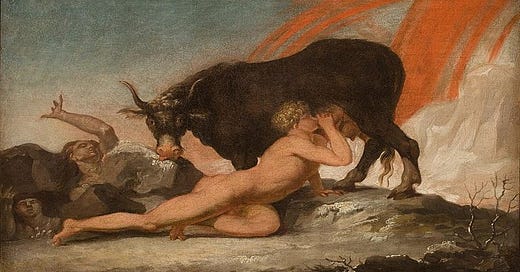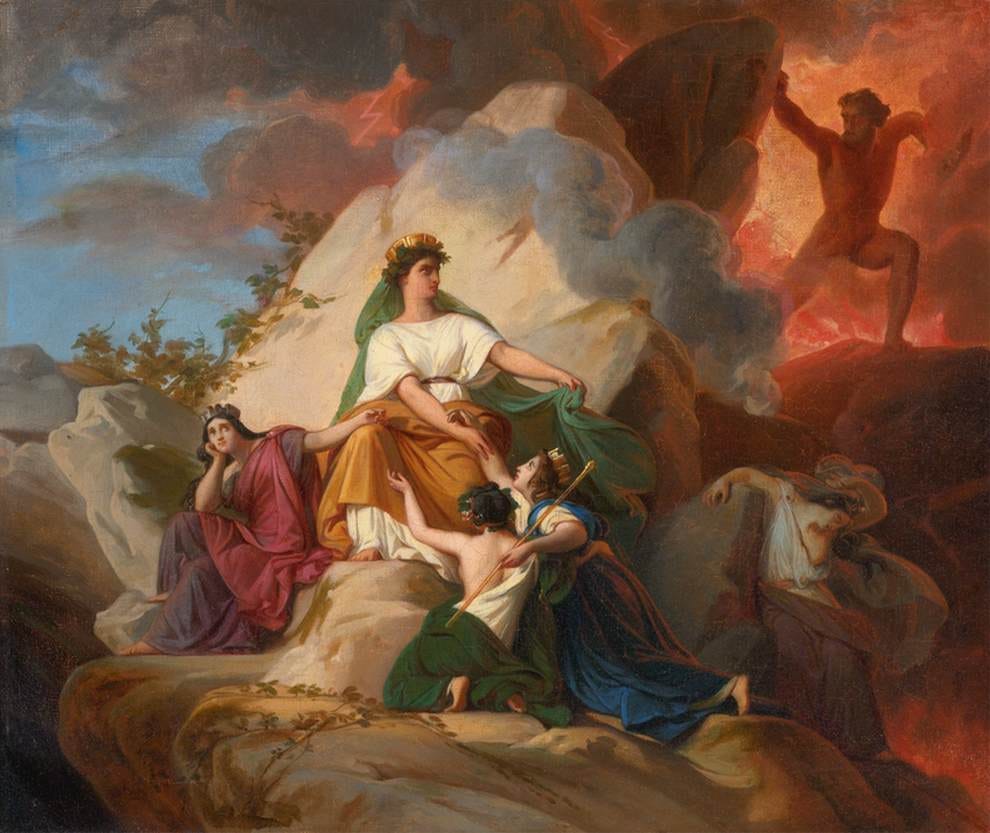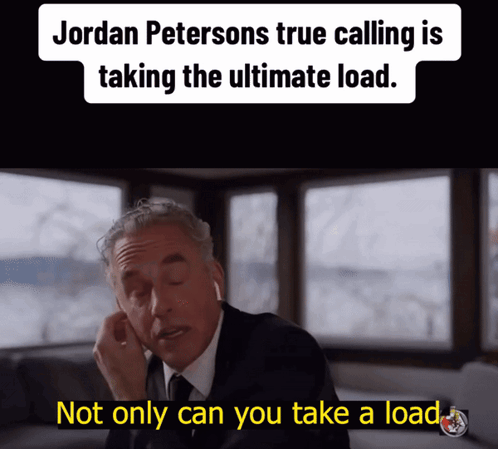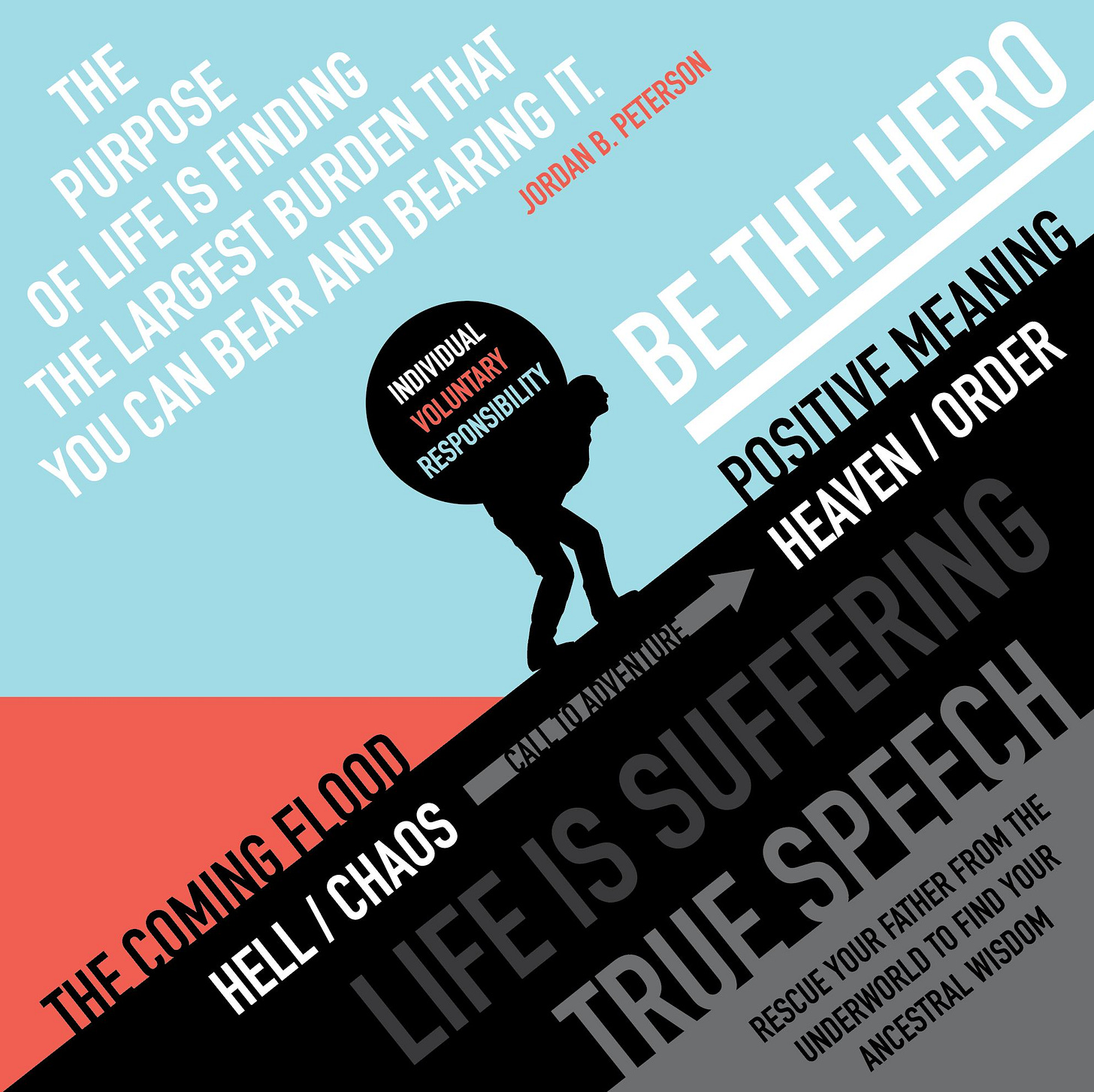In today’s increasingly polarized landscape, there are two terms that are pretty well know. These being Incels (involuntary celibates) and Chuds (a term for reactionary or right-wing individuals). While the left sees these groups as misogynistic and regressive, the right views them as misunderstood or unfairly maligned. Both perspectives however miss the deeper, more primal dynamics at play. Beneath the surface lies a universal psychological wound that neither side has the language, nor the courage to address.
Within this article we will go deeper into the infantile psyche underlying these phenomena, dissecting how societal narratives around power, gender, and vulnerability perpetuate these dynamics. As this is the blind spot for both sides.
The Myth of the “Milk-Giving Female”
To understand the psyche of both the so-called "Chud" and the incel, we have to delve into the archetypal narratives underpinning their views of women. The thing is that the psychological complexes they carry, often tied to societal narratives and thus cultural complexes (patterns of belief, emotions and behaviour tied to affect and trauma), distort the feminine into a mere source of nurturing, a primal figure akin to the "mother" or "caregiver" who offers both sustenance and solace. This archetype connects also to the later splitting of the Sovereignty Goddess archetype into the mother and witch, thus fragmenting the feminine. Through this the full picture of the feminine became split into various parts. Where for society the “good” feminine became seen as life-giver and healer. The cosmic counterpart to the masculine striving for order and achievement.
The independent woman however, which ties to the other side of the Sovereignty Goddess archetype became cast into the negative "witch" archetype. Demonised as a devourer rather than a giver, a force that has usurped or denied access to the milk of emotional and existential nurturing. In mythological terms, she becomes the dragon that hoards the treasure, the thief who has stolen the cattle, the source of sustenance and life itself. Not understanding how the Sovereignty Goddess as the unconscious is both life-giver and taker. Which is the nature of the unconscious as it truly is. Where a disconnection from wholeness, within the psyche or society, can cause unhealthy dynamics and thus trauma, neglect and harmful stereotypes and roles.
This dynamic also ties into the alienation that incels articulate. To them, women appear as gatekeepers to affection, intimacy, and emotional reprieve. Which is this exact role historically associated with the maternal and nurturing archetype. Yet, in their frustration, this gatekeeping becomes reinterpreted as a deliberate cruelty. Feminism, then, in their eyes, is not just a sociopolitical movement but a cosmic rebellion against the "natural" order of nurture, akin to a mythic inversion where witches curse rather than heal. The Chuds, meanwhile, extend this mythos to encompass a broader societal lament. Their fixation on traditional gender roles, and their resistance to change, often masks a deeper yearning for the archetypal feminine to return to her "rightful place" as the nurturer of their wounded inner child. The feminist, in this schema, becomes the archetypal villain: a Medea, not a Demeter; a Lilith, not an Eve.
What is most striking is the infantilization inherent in this worldview. Both Chuds and incels, in their rhetoric and emotional core, project their woundedness outward, seeking in the feminine a remedy for their internal fracture. Yet, this very longing is twisted by resentment, turning a yearning for healing into an accusation of theft. They cry out, in essence: "You have stolen the milk, the warmth, the care I was entitled to." Women, especially feminists, are thus cast as scapegoats for their unresolved grief and alienation. This psychological dynamic also explains the visceral intensity of their rhetoric and actions. The feminine is no longer just a person or a role; she becomes a symbol of something cosmic and primal that has been lost. Feminists, witches, and other "others" are merely masks for a deeper fear: that the nurturing feminine has disappeared entirely, leaving them adrift in a cold, uncaring universe.
Yet, here lies the paradox: their vitriol against women, particularly feminists, does not free them but binds them further to their wounds. Like Oedipus raging against his fate, they cannot see that the solution lies not in reclaiming the milk they believe was stolen but in facing the internal child that continues to cry for it. It is not the "witch" who withholds the milk, it is their own shadow. And with it their own childhood wounds, that are the source of their true issues. As much as women are trying to break out of the longstanding pattern of playing a ghost mommy. It is this inner wounding and ghost mommy role that they enforce on themselves, that leads to the state of being that actually weakens them. As walking around with this wounding is akin to a warrior slowly bleeding out, whilst being disconnected from his primal self.
So really what they long for is to return to the primordial and ouroboric state. Which is also depicted in Norse mythology. In the creation myth, Ymir is suckled by the cosmic cow Audhumla, an image that symbolizes primal dependence. Where in the Orphic rituals ingesting milk to regress into an infantile state, was then also about seeking healing for deep psychological wounds. This archetype then also persists today, albeit unconsciously. For many Incels and Chuds, the “female that gives milk”, which in ancient times was symbolised by cattle and female cows, is not just a metaphor but a psychological reality. Women, in their eyes, represent the ultimate source of comfort and nurturing. Which thus reveals a regressive yearning for the “mommy” who can heal their unconscious wounds. The dragon stealing the milk-giving female becomes a symbol of their felt deprivation, whether through feminism, societal progress, or personal rejection.
The Infantilization of Desire
Incels and Chuds really then project their inner wounded child onto women. Their longing is not merely sexual; it is existential. They seek a return to the ouroboric state of unconditional acceptance, safety, and sustenance. Yet, this need is framed through the lens of entitlement and frustration. So a toxic combination born from the cultural inability to acknowledge emotional vulnerability in men.
This infantilization reveals itself in:
Rage Against Feminism: Women’s autonomy disrupts the unconscious fantasy of the nurturing mommy, sparking resentment.
Idealization of Traditional Gender Roles: The fixation on women as caregivers mirrors a child’s dependency on their mommy.
Militant Masculinity: Attempts to dominate or control women are, paradoxically, unconscious desperate bids to secure their care.
The Left’s Misstep: Scorn Without Understanding
While the left critiques these behaviors as misogynistic, which has a point, it however often fails to address the root cause: a deeply wounded psyche. By framing these men as irredeemable villains, progressives reinforce the very alienation that fuels their grievances. The left’s disdain mirrors the cultural taboo against male vulnerability, leaving Incels and Chuds trapped in cycles of shame and anger. This lack of nuance also thus blinds the left to its own contradictions. While championing emotional awareness, it neglects to extend empathy to those who most embody unhealed emotional wounds. The result is a shallow moralism that does little to foster genuine healing or change. This thus keeps both sides trapped in endless conflict.
Healing the Infantile Wound
True resolution lies not in scorn or domination but in confronting the infantile wound head-on. This involves:
Acknowledging Vulnerability: Society must allow men to express emotional needs without fear of ridicule or rejection. Vulnerability is not weakness; it is the foundation of healing.
Reintegrating the Archetype: The nurturing feminine archetype symbolized by the milk-giving mother, must be reimagined, not as an object of entitlement, but has to be reintegrated into the Sovereignty Goddess, to balance emotional availability with healthy boundaries.
Ritual and Regression: Just as Orphic initiates used rituals to heal psychological wounds, modern people also must find ways to symbolically “regress” and confront their unmet needs. This could take the form of therapy, community-building, getting plushies or creative expression.
Both sides are complicit in perpetuating the very dynamics they claim to oppose. By refusing to address the infantile wound, they ensure its continued manifestation in increasingly toxic forms. Which does not foster change in men and thus keeps them in the very pattern of behaviour that perpetuates that progressives oppose, nor does it foster the families the right is apparently after. If one projects onto women a need for a mommy, when a child comes along, the relationship will break down, as the needs of the child start to take precedence. So really any healthy family requires healthy boundaries and emotional dynamics as a foundation. To heal your inner child, is to create the foundation for healthy children to grow up.
Healing the Wounded Inner Child
Now when it comes to the process of healing this wounding, in the ancient Orphic rituals this liberation happened through the symbolic death of the person, to relive the dismemberment of the god Zagreus (also known as Dionysus). The ritual next to this death and rebirth, included the ingestion of milk, and the initiate becoming like an unweaned child. This was for them symbolised by the Milky Way too. It was said about the Goddess, that she painted the heavens with the milk from her breasts. Milk for them was symbolic of the food of the newborn, and the souls that are reborn to celestial life. The price to be paid for this rebirth, to obtain the forgiveness of the mother of the god, Persephone, is to face in psychological terms the victim-child (the wounded inner child), and the pain and emotions that it holds. This itself is the process through which the crime of the Titans is undone, the person being reborn like a nursling kid. Those who participated in the rites, would according to Orphism dwell with the gods and attain immortality. This helped the person return to the child like state, and feel seen and be accepted, to be once more whole.
The Inner Critic and Shadow Father
The dragon of myth that steals the cattle, and keeps it away, like the Titans and also the titan Kronos, are all tied to the inner critic, which also is connected symbolically to the “shadow father”, who is the real source of restriction. It is the task of any young men to overcome this shadow father Kronos, like Zeus overcame him in ancient Myth, only then can young infant Dionysus be reborn, and with it the sacred marriage with Ariadne can take place. Dionysus treating her well, unlike Kronos. Kronos here are the internalised familial and societal norms, that have dismembered and wounded the inner child. As much as Yemo and thus Ymir was dismembered to create the social and cosmic order. It being Zeus who after defeating Kronos, who reordered the cosmic order, and renewed it by swallowing the cosmic egg of creation, nurturing Dionysus as well with the Korybantes (the ancient warriors akin to the wolf warriors of Apollo).
However figures like Jordan Peterson glorify the shadow father, and with it making figures such as Sisyphus, which he praises into symbols of heroism. Not revealing that this figure was being tortured in the underworld. Much like how scapegoats are stuck in the underworld in a state of torture. The Jungian analyst Sylvia Brinton Perera calls this the victim-ego, or what I like to call the victim-child. The original dismembered inner child and authentic self of the person. In the Orphic tradition, the Titans are not just external oppressors; they symbolize a betrayal of one's true self. They deny their own need for care and vulnerability, projecting that denial onto others. Like Sisyphus, who is condemned to eternally push a boulder uphill, symbolizing the relentless, futile striving of those trapped in cycles of self-betrayal and disconnection.
Similarly Atlas, tasked with bearing the weight of the heavens, represents the crushing burden of responsibility without reprieve. His symbolism aligns with a world-view that glorifies stoicism and endurance at the expense of tenderness, compassion, emotional expression, and interdependence. Which all ties into the scapegoat complex, which represses such things and is obsessed with taking the “Ultimate Load” and to suffer for others. This is not heroism, but what I call the Ghost Mommy role. It is actually emasculating and deeply infantilising, and denies the person their humanity, needs, emotions and even their basic dignity, in a veiled idea of “heroism”. Which is more akin to taking the “Ultimate Load” for the shadow father, who demands complete purity and self-denial, to the be strong one, the goat of god. This all in favor of an almost impossible ideal of endurance and responsibility. It is to become submissive to another man, whilst ones own masculinity is castrated. Which is actually what the inner critic demands in the scapegoat complex, as Sylvia Brinton Perera the Jungian analyst points out.
The accuser aspect, acting as an inner critic, assumes the role of a condemning judge, that demands absolute perfection and adherence to rigid norms. This inner judge refuses to accept or acknowledge any impulse. Creating thus a sort of rigid concrete block on desires which are repressed and seen as bad. Frequently, this aspect remains detached from awareness, concealed close to the inner child seeking acceptance. The accuser aspect, resembling a harsh puritanical figure, in it's more extreme form opposes the fulfilment of any need beyond basic survival, including dependency. And It labels such needs as selfish, needy, weak, childish and shameful or classifies them as gluttonous behaviours that must not be acknowledged. The resulting effect is the loss of personal autonomy and the burden of constantly meeting others' needs without receiving care in return, leading to deep internal suffering and isolation.
Men who adhere to these ideals become disconnected from their own feelings and unable to express their pain or seek support, which ultimately results in deep internal suffering. This stoic, "tough" version of masculinity fosters an environment where emotional honesty is seen as weakness, and the very notion of compassion, or emotional interdependence is undervalued. It is a form of self-sabotage and perpetual victimization. Hence Ghost Mommy, as it turns men into self-denying beings, who deny their humanity and emotions, much like women who have to endlessly nurture, without any reprieve or having their emotional needs met. This “heroism” similarly puts one into an endless self-sacrificial role, becoming a martyr for others, and a doormat. A slave to the shadow father, which castrates true masculinity.
The flaws in this narrative are evident when we consider the long-term effects on mental health, particularly among those who feel compelled to embody this masculine ideal. Many men, burdened by the weight of unrealistic expectations, fall into cycles of isolation, frustration, and unresolved grief. As a result, their inner wounds may remain unhealed, perpetuating a sense of inadequacy and resentment. The ideal of the hero, so deeply ingrained in our culture, not only isolates men from their emotional lives but also reinforces a toxic standard of masculinity that is ultimately damaging to their well-being. The True Heroes Journey is to go inward and face ones inner chaos, instead of projecting it onto others and create scapegoats.









